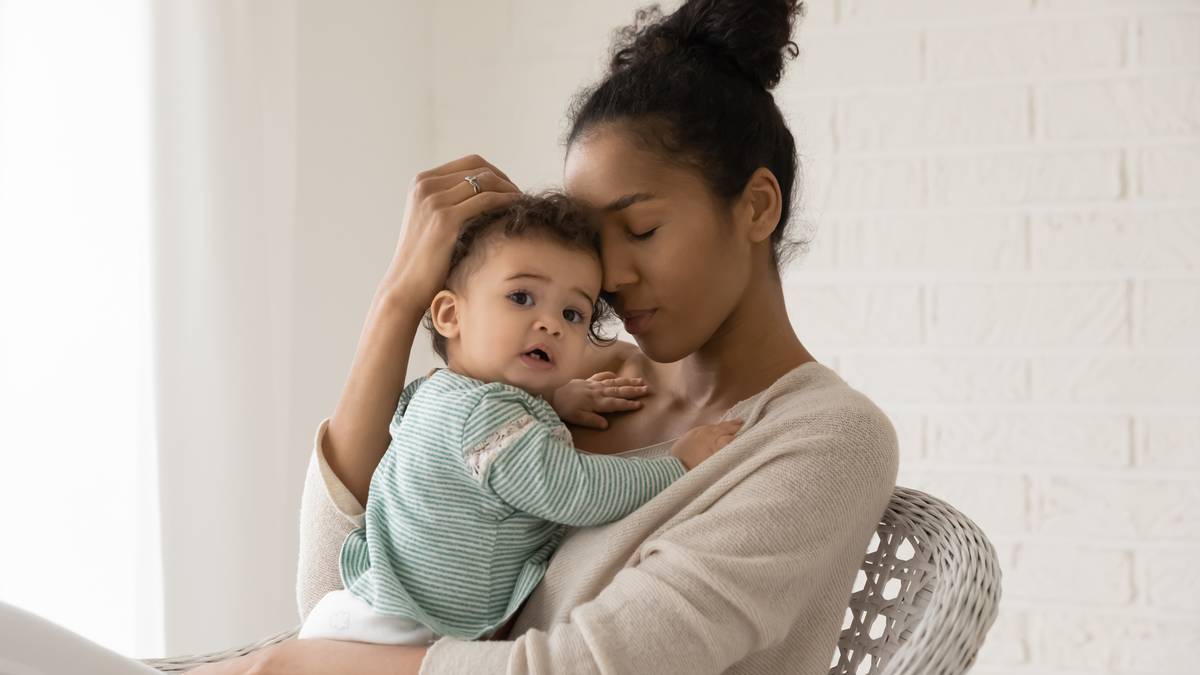New maternal mental health services in Northland are targeted at pregnant women and new mothers who require mild to moderate support. Photo / 123rf
The number of new mothers seeking mental health support after birth has more than tripled in Northland over the past two years and health services can’t keep up well, child provider Whānau Āwhina Plunket says.
PlunketLine has received 56 calls from Northland mothers in mental health distress from January to July this year. That is up from 53 for all of 2021 and 16 calls in 2020.
“Northland represents only a very small fraction of the total calls to our PlunketLine team about maternal mental health,” Sam Ferreira, Plunket regional operations manager Northern Region, said.
“But in line with the rest of the country, we have seen a significant increase in calls about maternal mental health from this region.
“Our nurses and health workers are also reporting increases of maternal mental illness.”
Ferreira said demand for mental health services often outstripped supply across the whole health system.
“In Northland, access to a GP for assessment and treatment can take up to three weeks.
“Other mums have been unable to enrol with a GP because of a lack of practices taking new enrolments.
“Mental health support services are very limited and what is available has lengthy waiting lists.”
At the end of last year, Associate Health Minister Ayesha Verrall announced a funding boost for maternal mental health services in what were then still district health boards – Lakes, Northland, Waitemata, Counties Manukau and Hawke’s Bay.
Starting in July this year, Northland is receiving an additional $500,000 per year for service expansion to enhance early intervention initiatives for women with mild-to-moderate maternal mental health needs.
It will provide more options for mothers who were struggling with their pregnancy from the second trimester through until the infant is one.
Northland is getting two new community support workers – one based in Whangārei with community support organisation Arataki Ministries and the other based in Kaitaia and Kaikohe with Te Mana Oranga.
The community support workers (CSW) will be looking after mothers that meet the threshold for Manaaki Kākano Maternal (MIMH) and Infant Mental Health as well as mothers that do not.
Consultant clinical psychologist Holly Coombes is the clinical lead at Manaaki Kākano MIMH and He Tupua Waiora Pregnancy and Parental Service in Northland and says the two CSWs extend the continuum of maternal mental care for mothers who can’t access Manaaki Kākano.
“Previously there has been a gap in terms of accessing support for mothers who may be struggling in the perinatal period, but did not meet criteria for secondary mental health services for moderate to severe mental health concerns,” Coombes explained.
“The money allocated has been used to target those in the mild to moderate range, at the primary level.”
The CSWs work alongside GPs and community counsellors to provide specialist, in-home support to mothers and their infants.
The funding has also been used to target needs in the rural population meaning women who live in the Mid and Far North now get access to support at home too.
“Referrals can be made to the community support worker via a GP or the lead maternity carer (LMC), as well as the MIMH team.
Doctors, midwives and Plunket can also refer women to maternal mental health services if there are concerns regarding moderate to severe mental distress brought about by the pregnancy journey or experience of parenting.
“We do not have a wait-time, and usually whānau will be seen within one week for a clinical assessment and intervention planning,” Coombes said.
“We can offer a range of services, including psychiatric care, psychological therapies, nurse and social work support, and interventions focused on supporting bonding and attachment processes.
“We target pregnancy and birth-related anxiety, and post-traumatic symptoms following birth. We also support women with postnatal depression, obsessive-compulsive disorder, anxiety disorders, postpartum psychosis, and eating disorders during pregnancy, and in the postnatal period.”
Manaaki Kākano works closely with LMCs and obstetrician-gynaecologists to support psychological safety during birth.
“Additionally, we can access the regional specialist Mother and Baby Unit attached to Starship Hospital when hospital-level care is indicated,” Coombes said.
“Our aim is to keep mothers, babies, and other whānau together while accessing specialist, tertiary-level care.”
Te Tai Tokerau whānau can also access specialist support focusing on parents who are hāpu or have tamariki under the age of three years, who are struggling with substance use and addictions impacting their ability to parent safely.
Meanwhile, He Tupua Waiora Pregnancy and Parental Service provide intensive, wraparound support for harm-reduction strategies, and parenting-specific interventions.
That includes advocacy for whānau who interact with various government services such as Oranga Tamariki, Work and Income, Police, Ministry of Justice, and Kāinga Ora.
Coombes said service development across the spectrum was ongoing and had been prioritised by the former Northland DHB while central government has identified the region as a high-needs area.
Plunket’s regional operations manager Northern Region Ferreira said early identification and treatment of perinatal depression was important.
“It leads to better outcomes for women and their children and whānau,” Ferreira explained.
“We encourage anyone who needs support to talk to their Whānau Āwhina Plunket nurse, kaiāwhina or health worker, or to call PlunketLine on 0800 933 922.”
“Our team of registered nurses is available 24/7, and can help people get the support they need.”




